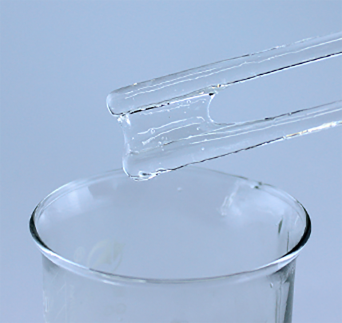
Dec . 03, 2024 19:27 Back to list
Exploring the Benefits and Applications of Redispersible Polymer Powders in Modern Construction
Understanding Redispersible Polymers Applications and Benefits
Redispersible polymers are a significant innovation in the field of material science, particularly within the construction and coatings industries. These polymers offer unique properties that enhance the performance of various products, making them essential for modern applications. In this article, we will explore what redispersible polymers are, their applications, and the benefits they provide.
What are Redispersible Polymers?
Redispersible polymers are powdered polymers that can be redispersed in water after drying. They are typically produced through a process called spray drying, which converts a polymer emulsification into a powder form. When the powder is mixed with water, it returns to its original emulsion state, allowing it to interact with other components in a formulation. This unique property makes redispersible polymers highly versatile.
Applications of Redispersible Polymers
Redispersible polymers are widely used across various industries, primarily in construction and coatings. Some of their key applications include
1. Adhesives and Sealants In the construction industry, redispersible polymers are often used to enhance the adhesion properties of adhesives and sealants. They improve flexibility, water resistance, and durability, making them suitable for various applications, including tiling and flooring.
2. Mortars and Plasters These polymers are integral in creating high-performance mortars and plasters. They improve the elasticity of mortar systems, reduce the risk of cracking, and increase workability. As such, they are commonly used in tile adhesives, repair mortars, and façade systems.
3. Paints and Coatings In the coatings industry, redispersible polymers enhance the performance of paints by improving their adhesion, weather resistance, and abrasion resistance. They ensure that coatings maintain their aesthetic appearance and protective qualities over time.
4. Textiles and Nonwovens Redispersible polymers are also used in the textile industry to improve the properties of nonwoven fabrics. They provide water repellency, enhance the bonding of fibers, and contribute to the overall strength of the material.
redispersible polymer

5. Personal Care Products In personal care formulations, these polymers can improve the texture and stability of products such as lotions, creams, and gels. They help achieve the desired consistency and enhance the sensory attributes of these products.
Benefits of Redispersible Polymers
The use of redispersible polymers across different applications offers several benefits
1. Enhanced Performance Redispersible polymers significantly improve the mechanical properties of construction and coating materials, resulting in higher durability and longevity.
2. Versatility The ability to be redispersed in water makes these polymers highly adaptable to a wide range of formulations, ensuring their applicability in various industries.
3. Eco-friendliness Many redispersible polymers are produced from renewable resources and can contribute to the development of more sustainable construction and manufacturing practices.
4. Cost-Effectiveness By improving the efficiency and longevity of products, redispersible polymers can lead to cost savings in both material usage and maintenance over time.
5. Improved Workability In construction applications, redispersible polymers enhance the workability of mixes, making them easier to apply and handle, which is crucial for high-quality results.
Conclusion
Redispersible polymers play a crucial role in modern applications ranging from construction to personal care products. Their ability to be easily mixed and their enhanced performance characteristics make them an invaluable resource across multiple industries. As the demand for high-performing, sustainable materials continues to grow, the innovative use of redispersible polymers will likely expand even further, paving the way for exciting developments in material science and applications.
-
Versatile Hpmc Uses in Different Industries
NewsJun.19,2025
-
Redispersible Powder's Role in Enhancing Durability of Construction Products
NewsJun.19,2025
-
Hydroxyethyl Cellulose Applications Driving Green Industrial Processes
NewsJun.19,2025
-
Exploring Different Redispersible Polymer Powder
NewsJun.19,2025
-
Choosing the Right Mortar Bonding Agent
NewsJun.19,2025
-
Applications and Significance of China Hpmc in Modern Industries
NewsJun.19,2025







